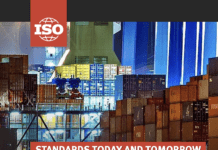
Planning abroad requires extra legwork for the events team to ensure a sense of security for attendees.
Prevue addressed some of the concerns regarding the topic at last year’s Visionary Summit, with the help of Kevin Iwamoto, senior consultant for GoldSpring Consulting, who spoke on planning globally. In this Shakedown, Iwamoto continues the security conversation and provides insight into what planners should be preparing for when organizing meetings abroad.
What would you say defines a sense of security at international meetings, and how does it differ from domestic meetings?
Hosting off-site events is a major undertaking for any organization. Whether you’re hosting an off-site event domestically or internationally, the principles of your event risk management program are the same. There are more areas of consideration when you host an event overseas like pandemic diseases, crime rates, political uncertainty, adequate insurance coverage and data privacy standard differentiations (i.e., GDPR) but the baseline of principles to consider in terms of safety and security are basically the same.
In what ways can meeting planners have a false sense of security?
According to the results of our survey, planners often feel that the primary responsibility for safety/security resides with the venues and their corporate departments like HR, Security, Corporate Travel, etc. Instead of assuming, we need to be asking as part of the checklist and documentation process, the various plans in place from the venues, the internal corporate departments and, most importantly, who takes the lead in case of an incident(s).
How can they mitigate that risk?
They need to ask and verify and, in the case where there’s no proactive measures, create a risk mitigation plan. There are also existing corporate relationships with risk, safety and security management professional organizations like International SOS and iJet (now called WorldAware International) that most corporate travel departments have in place that planners can leverage. WorldAware also has free security vetting tools online that planners can use to gauge risk levels especially when planning meetings/events overseas. There are resources, templates and best practices also available through various professional trade associations like EMSSI, GBTA, MPI, etc. Leverage any and all of the above, but most importantly, be proactive and not reactive. Lastly, do not procrastinate as things can happen anywhere, anytime and overnight.
What other tips do you have for planners looking to ensure security for meetings abroad?
One of the best checklists I’ve seen is from The Exhibitions and Meetings Safety and Security Initiative (EMSSI) that was launched in 2016 by the International Association of Venue Managers (IAVM), the International Association of Exhibitions and Events (IAEE) and the Exhibition Services & Contractors Association (ESCA) with the goal of protecting the $283 billion U.S. meetings industry and the people who attend meetings, conventions and exhibitions.
They raise these questions as a checklist for event planners to consider in the course of their work:
- What type of training has the venue/supplier’s staff received and how recently?
- Has a threat and vulnerability assessment been performed?
- Who is responsible for crowd control and how will it be implemented?
- Is there a drone policy in place, and what is the procedure?
- Is the venue Safety Act certified?
- What type of access control measures are required, especially for high in-and-out traffic such as is common with general service contractors?
- What is the perimeter security, and how does it work for inbound and outbound freight and cargo?
- How often do you invite law enforcement and EMS to your venue to ensure a high level of familiarity in the event of an emergency?
- Who is responsible for ensuring each piece of the plan is executed?
The EMSSI also offers this list of best practices for ensuring event security:
- Perform a risk assessment—always include a security representative in meetings
- Site evaluation, parking, and security—prepare a checklist of security questions
- Ask for evacuation plans in case of emergency
- Crowd management—crowd types and guard force requirements
- Know the location of all emergency exits
- Access plan for EMS and first responders
- Contingency plans in case of bomb threats or power outages
- Medical service plan—addressing injuries and illness, and defining a staging area










